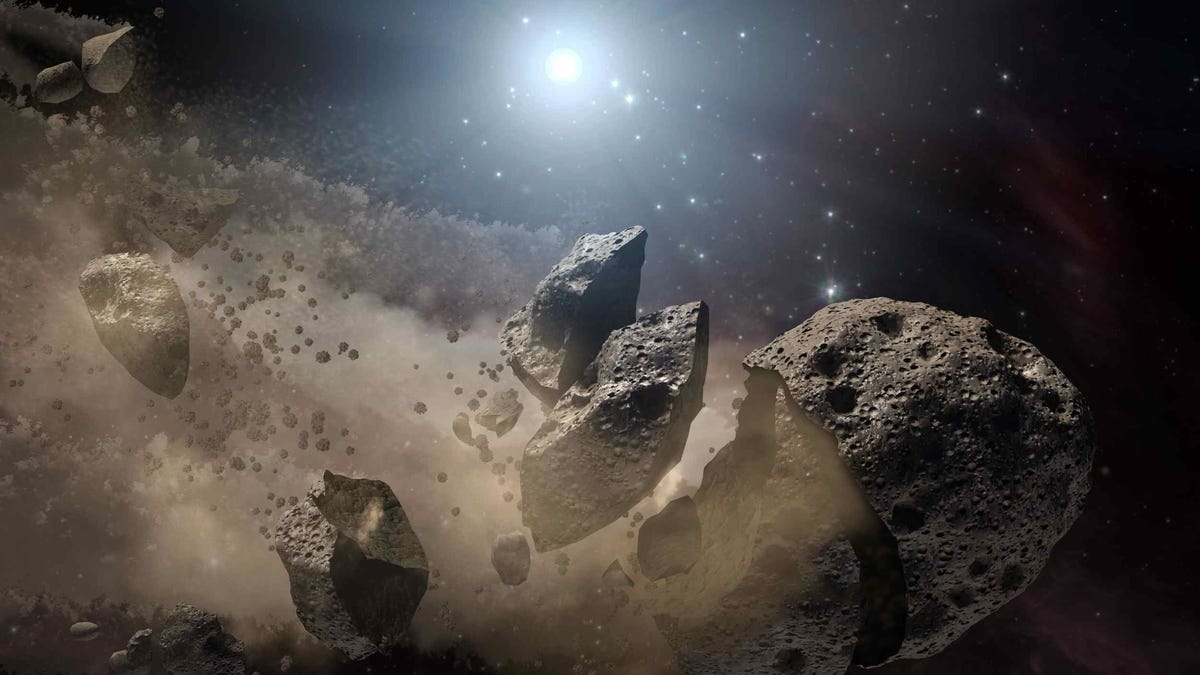NASA: Earth may be buzzed by an asteroid in March
There's little data on asteroid 2013 TX68, leaving doomsayers predicting a cataclysmic collision. But the space agency is far less concerned.
Once again, NASA is disappointing doomsday prophets with its data-and-science obsession. The space agency said on Tuesday that an asteroid spotted for the first time just a few years ago could make a very close pass by Earth next month but that it won't smash into us.
Asteroid 2013 TX68 will make its latest close pass by Earth on March 5. The 100-foot (30 meters) long space rock could fly by at the comfortable distance of 9 million miles (14 million kilometers) or a little too close for comfort at just 11,000 miles (17,000 kilometers). That wide range is due to the fact that scientists were able to track the asteroid only for a short time when it was first discovered in 2013.
But even with the small amount of data on the asteroid's trajectory, NASA is pouring cold water on some of the more paranoid corners of YouTube and the Internet where people believe there's still a chance that 2013 TX68 could hit the Earth, perhaps bringing the End Times with it. In a release, the agency said there's no possibility that this object could slam into Earth during the flyby next month. However, there's a 1-in-250-million chance it could hit Earth on its next pass in 2017, and even smaller odds for passes in 2046 and 2097.
"The possibilities of collision on any of the three future flyby dates are far too small to be of any real concern," said Paul Chodas, manager of NASA's Center for NEO Studies (CNEOS). "I fully expect any future observations to reduce the probability even more."
The cloud of possible locations that asteroid 2013 TX68 will be in at the time of its closest approach to Earth.
Even if 2013 TX68 did smack our planet, we probably wouldn't fall victim to an extinction-level event. The asteroid measures roughly twice the size of the meteor that exploded in the sky over Russia three years ago. That event knocked out thousands of windows in the city of Chelyabinsk before the boulder landed in a frozen lake outside town, but it didn't cause any other damage.
Perhaps a more real threat is the notion that the asteroid could hit a satellite in orbit, as its projected range could bring it closer to the Earth than many craft currently in geosynchronous orbit. Now, I haven't run any numbers on this, but I'm assuming the odds of two such relatively small objects colliding in space is just insanely miniscule, like stepping on a specific grain of sand in the Sahara. Nonetheless, this asteroid will be stomping around the neighborhood.
Fortunately, NASA and others are already on the job, and I believe Bruce Willis is also standing by to reprise his role from "Armageddon."


